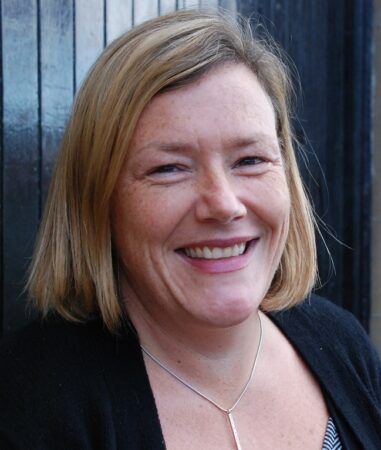Home News & Views New Advanced Practice Principles
New Advanced Practice Principles
We were really delighted to see the NMC publish the Principles for Advanced Practice recently. These are much needed principles to bring clarity and consistency for both professionals and the public to advanced nursing and midwifery practice across the UK.
Development of the Principles
 Joanne Bosanquet, FoNS CEO:
Joanne Bosanquet, FoNS CEO:
‘I joined the NMC Independent Steering Group on Advanced Practice in summer 2023 on behalf of FoNS, and also as a long-standing collaborator with many of the group’s members and the NMC.
The group is steered by Chair Kay Fawcett, who has developed an impressive approach to steering a very passionate and vocal group! There have been lots of debates, lines placed in the sand and a genuine belief that this is the right way to go for nursing now and in the future. All proposals have been presented to the NMC Council and are included in the papers if you’re interested in the journey so far.
I am delighted that the newly published Principles include reflection and reflexivity and clinical supervision*.’
Clinical Supervision for Advanced Practice
 Clinical supervision for advanced practice is not currently well researched nor is it standard practice despite the numerous potential benefits. Grace Cook, FoNS Resilience-based Clinical Supervision Programme Lead, has been working with a group of global Advanced Nurse Practitioners to implement and evaluate a RBCS programme to support their wellbeing post-covid. She reached out to the group following the publication of the Principles and Dr Melanie Rogers said:
Clinical supervision for advanced practice is not currently well researched nor is it standard practice despite the numerous potential benefits. Grace Cook, FoNS Resilience-based Clinical Supervision Programme Lead, has been working with a group of global Advanced Nurse Practitioners to implement and evaluate a RBCS programme to support their wellbeing post-covid. She reached out to the group following the publication of the Principles and Dr Melanie Rogers said:
Advanced Practice continues to develop exponentially in the United Kingdom. It is common for Advanced Practitioners to be working in all areas of clinical practice. They play critical roles in delivering holistic patient-centred care through their ability to make autonomous clinical decisions. Advanced Practitioners are trained to have expertise in clinical practice, leadership, education and research. They often assess, diagnose and manage problems historically managed by doctors.
Their role ensures high quality, timely, holistic care is provided to patients and demands resilience to manage the complexities and challenges that autonomous practitioners face. Advanced Practitioners manage demanding workloads, make clinical decisions related to complex presentations and have to manage the emotional impact of their work which often places them under chronic stress.
Studies have shown that teamwork and supportive working environments help Advanced Practitioners to flourish and maintain their wellbeing. Unfortunately, many Advanced Practitioners work in areas that lack organisational support and find the demands of their roles are not recognised leading to illness, reduced job satisfaction and absenteeism. Employers and organisations need to be cognisant of the Advanced Practitioner role and the demands they face. They should prioritise wellbeing, provide professional and personal development opportunities and consider supportive supervision for example Resilience-based Clinical Supervision.
Next Steps
The next phase will be implementation of the principles, and we look forward to seeing how they work in practice. We will be sharing any resources or papers published in relation to this area so keep an eye out! In the meantime, FoNS continues to advocate for restorative clinical supervision for all nurses across the UK.
If you are interested in any of our programmes, including Resilience-based Clinical Supervision, please get in touch [email protected].
* Principle 1.6 States: All nurses and midwives on our register must practise in line with the Code. In addition, advanced level practitioners should: Role model reflective and reflexive practice and advocate for access to individualised support and clinical supervision to ensure continuous learning, improvement and professional development across the four pillars.
Comments are closed.

